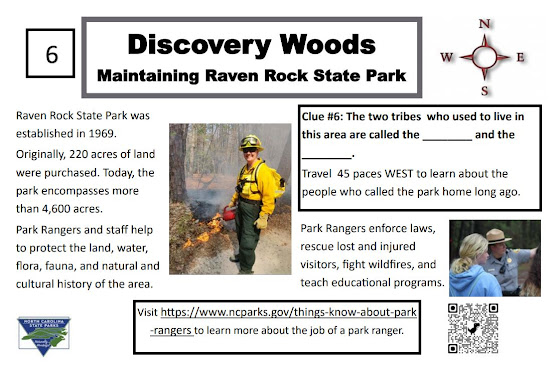Julie Neumark will be extra prepared as she begins work as a non-formal educator at the Hulbert Outdoor Center in Fairlee, Vermont this fall. Julie recently received a BS in Environmental Studies with a concentration in Environmental Education from UNC Asheville and completed her North Carolina Environmental Educator Certification, which she credits as helping her find her new job. In her new role, she will be leading team building activities, high and low-ropes course activities, outdoor sports, arts, crafts, drama, and environmental education lessons to groups of various sizes, ages, and backgrounds at the center.
When asked about her favorite part of earning her certification, Julie says it was the workshops. “The workshops were all absolutely awesome and so informative! I especially liked the in-person workshops.” Julie says some of her favorites include Project WILD and Growing Up Wild, which are programs of the NC Wildlife Resources Commission; Project Learning Tree, coordinated by NC State University – Extension Forestry and the NC Forest Service; Project OWL, a program of The North Carolina Arboretuml; and the Methods of Teaching Environmental Education course which is offered by a variety of organizations in NC. “I have a huge box of accumulated books and tools now from this certification, that I will bring with me everywhere and use in all my jobs!”
In addition to the workshops, Julie says the community partnership project was an experience that stood out for her. For her project, Julie partnered with Emma Childs, the sustainability director at Christmount Fellowship in Black Mountain. “Together we created an educational booklet about how to be more environmentally sustainable in your everyday life. I painted illustrations and Emma added simple text to each one. The booklet will be placed in each room at Christmount, to help provide an engaging, fun, easily comprehensible resource for residents and visitors. Emma wanted community members to understand the interconnectedness of people and the environment, and helping to provide the WHY of why we should be good environmental stewards and care about how our actions affect the planet.”
When asked if the program changed her approach to teaching, Julie said it taught her to be a better environmental educator and how to communicate environmental issues to others. “I have learned so much about how to be the best environmental educator I can be! From using the 5E's curriculum model, to awareness of diversity and inclusion, to asking open-ended questions, to leading with humility, kindness, compassion, humor, flexibility, open-mindedness, creativity, and curiosity.”




